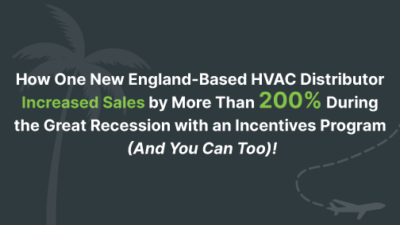Back in March, global aviation authorities made the decision to ground Boeing’s 737 Max series of jets after two fatal crashes occurred in the span five months. While such events have obviously been devastating for all of those directly involved, the ripple effect from these crashes and the subsequent decision to ground the jets has not been confined to one or two countries or airlines.
It’s created significant challenges for many around the globe, including travel agencies, incentive travel planners, and the hundreds of thousands of passengers who have had to find alternative solutions to altered trip itineraries as a result of canceled flights.
As an example, American Airlines alone had to cancel roughly 90 flights per day during the month of April, forcing passengers to either rebook on different flights or else receive a refund for their canceled flight. For airports, airlines, and travel agents, this meant some serious headaches as they attempted to mitigate the ensuing chaos. For travelers, it meant having to hear about your niece’s wedding via Facebook rather than being able to attend in person.
It meant losing an entire day of your romantic long weekend getaway, the one you’d been planning for you and your spouse for months. It meant having to put up with a connecting flight and long layover with a screaming infant. It meant having to decide between leaving your destination at 5am on Sunday or booking an extra night at your hotel, flying home Monday and pulling your kids out of school for the day (let’s just hope they didn’t have a test!).
These are just a few of the real-life problems that can and do occur when flights are canceled, and while they might seem like small potatoes in the grand scheme of things, for those of us who live in the trenches of everyday life, they can make all of the difference. This is only amplified when we’re talking about thousands of canceled flights over the course of a single month, with potentially hundreds of thousands of travelers affected.
How The Boeing Situation Affects Incentive Travel
Of course, incentive travel planners have not been immune to this disruption either. At HMI, we had one incentive trip in particular that was affected by the Max 737 fiasco. During the height of cancellations, one of our programs featured a group trip to Antigua, with many of our participants scheduled to fly back home on American Airlines.
Unfortunately, at the time American only offered two direct flights per day from Antigua to the U.S., and due to the grounding of the Max 737, not only did they have to cancel one of these flights—they canceled it just three days prior to the trip.
This left our trip directors and flight-watch team working around the clock to find alternative exit strategies for dozens of incentive trip participants. With no direct flights available for the next five days, our group travel coordinators had to get creative in finding ways to help these participants get home in as timely and convenient a fashion as possible.
This meant re-booking some people through other Caribbean islands, various American cities, and even Canada—certainly not ideal, but definitely better than the alternatives of dreadfully long layovers and exorbitant last-minute ticket prices via other airlines.
When it comes to managing incentive trips, herein lies an important difference between running the program internally, outsourcing to an agency with an in-house force of incentive travel planners, and working through a third-party travel agency.
While a travel agency might be able to provide individualized service for a family or small group, this becomes far more challenging when you’re talking about 20 or more individuals flying in and out of a variety of destinations. Even more so if you’re doing that all yourself.
An in-house team, on the other hand, works directly with both airlines and participants—no matter the number—to ensure that each and every person makes it to their destination as quickly as possible.
In-house incentive travel planners are in constant communication with group participants, providing information and assurance while making and answering calls around the clock during arrival, departure, and, if necessary, in the days leading up to a trip. This proactive communication provides a measure of comfort to both the client and their participants, who know that they can reach out to the team at any time and receive updates on their unique travel circumstances.
In a way, an in-house ticketing team is like having trip insurance for when something goes awry—such as when the FAA grounds a whole fleet of airplanes without much notice due to safety concerns. It’s these types of unexpected situations for which the services of an in-house team can prove invaluable, providing peace of mind for every single one of your participants.
Trying to decide whether or not to use a travel agency for your next incentive trip? Check out some reasons to outsource your incentive trips here and find out how a professional group of incentive travel planners might be the right choice for your business.
Sources
https://thepointsguy.com/news/airlines-extend-737-max-cancellations/




